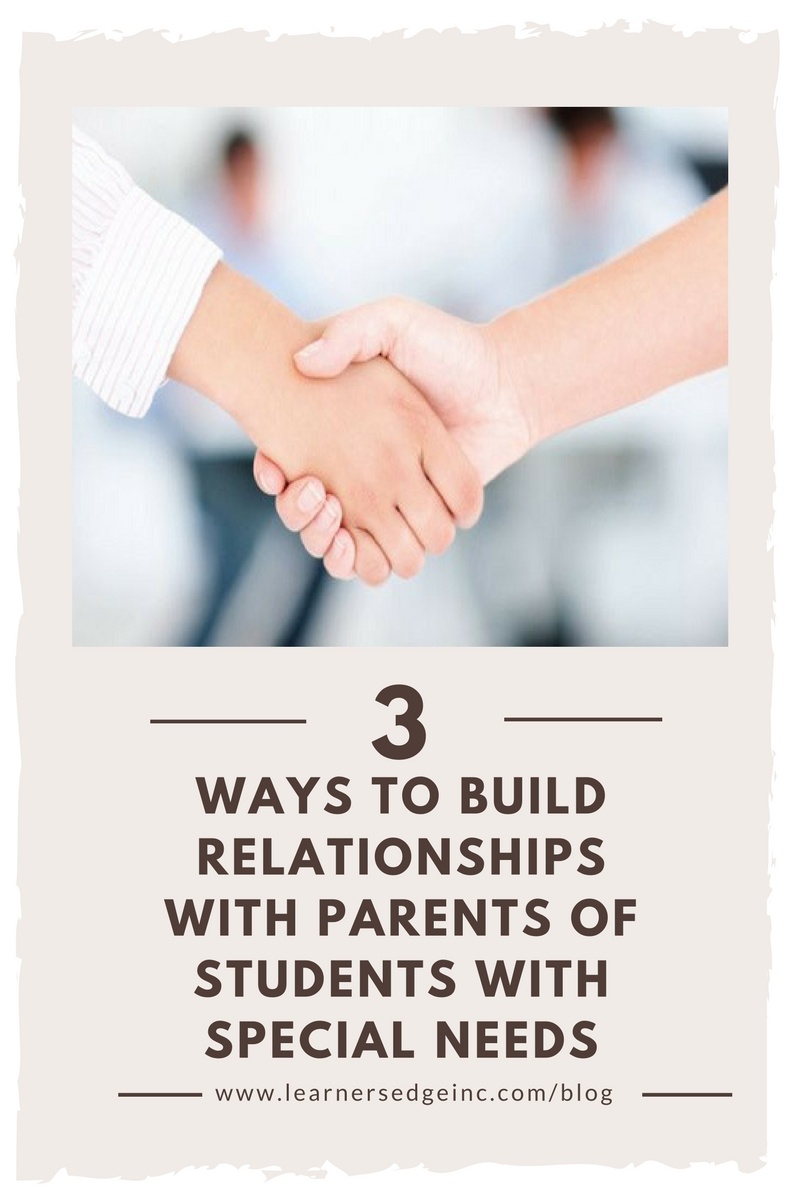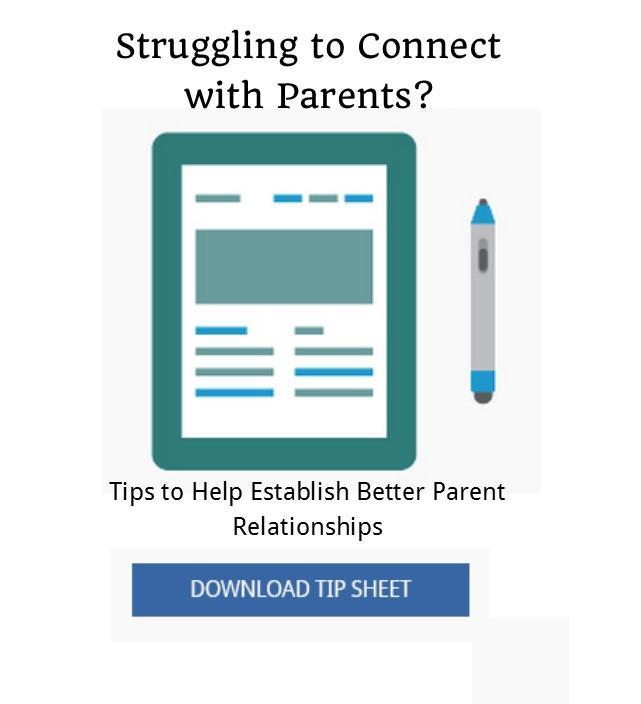This week’s blog post writer is Jill Rockwell.Jill is a Curriculum & Instruction Specialist with Learners Edge. Prior to joining the Edge, Jill was a special education teacher with experience teaching grades K-12. She appreciates and embraces the four seasons of Minnesota and can often be found hiking on nature trails with her husband and their young son.
Good news- due process hearings in special educationhave decreased since 2004. Due process hearings, comparable to courtroom trials, take place when special needs parents/families and schools cannot come to an agreement about the services, needs, program placements, etc. for children with special needs. One key factor contributing to this decrease is attributed to building stronger relationships between schools and families.
Below are three ways I formed partnerships with parents of students with special needs(and avoided due process hearings). Perhaps these methods will be beneficial in working with students with special needs and in building relationships with the families you work with.
1. Work on building relationships with parents as soon as possible.
Every fall, I drafted a letter for parents, personally inviting them to our school wideback-to-school night. The letter also provided information about myself, including the best ways to contact me. At the end of the first week of school, I touched base with parents to see how things were going from their perspective, while sharing my own observations. Connecting with families and establishing trust early on helps make parents more open to hearing inevitable concerns that come up.
2. Share stories about their child.
Parents appreciate not only hearing about how their children are doing academically, but socially as well. Share heart-warming stories with parents about their children to show you really know and care about their child. After a parent/teacher conference between a parent, a general education teacher, and myself, I received this email from the parent (names have been changed to protect confidentiality):
Hi Jill and Lisa – It was great to see you both and to hear the stories you shared regarding Sam. They totally crack me up. I already installed Dictionary.com on his iPad and iPhone. I’m pleased to learn that he is doing well academically and socially. The meeting was great…very insightful. Just wanted to thank you both for your time! Enjoy the beautiful evening, Mark
3. Demonstrate empathy and actively listen when interacting with parents.
Consider the parents’ perspectives by trying to understand and appreciate the great responsibilities involved with parenting a child with a disability. Not only is it important to actively listen to and validate parent concerns, but also invite feedback and ideas from parents. For example, restate any concerns they share and ask them what strategies they have found effective at home. Together, you will find solutions.
While I have never been involved in a due process hearing (thankfully), I came close once as a result of a communication breakdown. Through that experience, I learned that if there is one thing parents and educators can always agree upon, it is the importance of child happiness and success.
What do you do to foster partnerships with parents of children with special needs?
Are you interested in gaining a better understanding of special ed law, including IDEA 2004 and Section 504? Enroll in Learners Edge Course 687: Special Education Law 101: Rights of Students, Responsibilities of Educators and learn how to strengthen partnerships with parents and other IEP team members and become familiar with key terms and acronyms such as: FAPE, LRE, IEP, manifestation determination, and procedural safeguards.
***
Learners Edge is passionately committed to providing you with continuing education coursework, materials, and tools that will help you succeed in your classroom and in your career.
Offering more than 100 print-based or online courses for teachers, you can earn the graduate credit you need for salary advancement and meet your professional development needs. Contact us today to get started!







